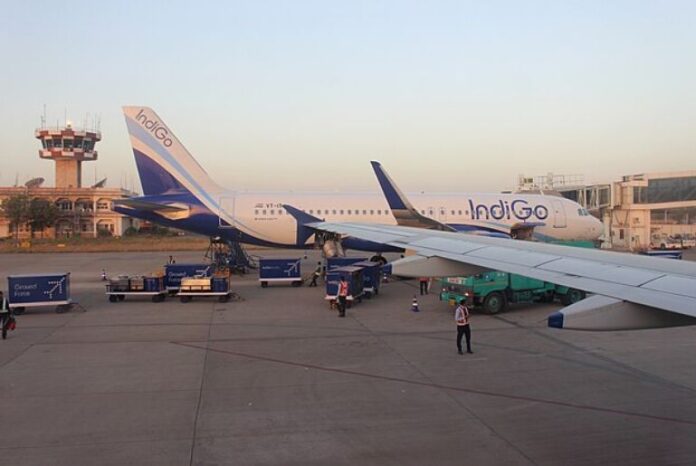IndiGo Faces Backlash After Flight Delay and Distribution of Expired Snacks.
Passengers on an IndiGo Airlines flight from Nagpur to Indore faced an unexpected and frustrating situation on Saturday morning. Originally scheduled to depart at 8:45 am, the flight was delayed by nearly three hours due to operational issues. While delays in air travel are not uncommon and often dealt with through compensatory measures, this incident escalated dramatically when passengers discovered that the snacks provided during the wait were expired.
The delay, which pushed the departure to around 11:45 am, already tested the patience of the passengers. Operational issues are part and parcel of air travel, and airlines typically try to mitigate the inconvenience by offering refreshments or other forms of compensation. In this instance, IndiGo Airlines attempted to placate the waiting passengers by distributing biscuits. However, what was intended as a goodwill gesture quickly turned sour.
According to reports from the Times of India, several passengers noticed that the biscuits handed out by the airline had expired a month earlier. This alarming discovery added a layer of concern over health risks to the already frustrating delay. Many passengers had consumed the snacks before realizing they were past their expiration date, leading to a mix of outrage and worry about potential health implications.
The situation at the airport became tense as passengers began voicing their concerns and demanding explanations from the airline staff. Their frustration stemmed not only from the delay but from feeling that their well-being had been compromised by the airline’s negligence. The distribution of expired snacks was seen as a serious oversight, aggravating an already uncomfortable situation.
IndiGo Airlines’ manager at Indore Airport, Vipin Sharma, addressed the incident after the flight finally landed. Speaking to the Times of India, he confirmed that the delay was due to technical reasons and expressed regret for the inconvenience caused to the passengers. However, Sharma mentioned that he was not aware of the specific food items served in Nagpur and that the passengers were offered a choice of food and drinks upon their arrival in Indore as compensation for the delay.
Despite the airline’s efforts to make amends, the damage was already done. The distribution of expired biscuits was a significant lapse in customer service, highlighting how minor mistakes can quickly escalate into major issues. Passengers felt that their basic needs and health concerns were not adequately addressed, overshadowing any compensatory measures taken by the airline.
This incident serves as a stark reminder of the importance of meticulous attention to detail in customer service, especially in the aviation industry where delays and other operational issues can already strain customer patience. Providing expired snacks, even unintentionally, can severely damage an airline’s reputation and trustworthiness. It emphasizes the need for airlines to ensure that all compensatory measures are not only appropriate but also safe and up to standard.
In the aftermath of the incident, IndiGo Airlines will likely need to review and tighten its internal processes to prevent similar occurrences in the future. Ensuring that all food items offered to passengers are within their expiration dates is a basic but crucial aspect of service. Additionally, better communication with passengers during delays can help manage expectations and reduce frustration.
The passengers’ experience on the delayed Nagpur-Indore flight underscores the broader challenges airlines face in maintaining high standards of customer service amid operational disruptions. While technical issues are sometimes unavoidable, how an airline handles the resulting passenger inconvenience can significantly impact its public image. Ensuring that compensatory measures, such as providing snacks or refreshments, are of good quality and safe for consumption is fundamental to maintaining customer trust.
This episode also highlights the critical role of frontline staff in managing passenger relations during such disruptions. Their ability to provide timely and accurate information, along with safe and appropriate compensatory measures, can make a significant difference in how passengers perceive the airline’s overall service.
In conclusion, the delayed IndiGo flight from Nagpur to Indore and the subsequent distribution of expired biscuits turned a manageable operational hiccup into a major customer service failure. It serves as a poignant lesson for airlines on the importance of quality control and effective communication. Moving forward, IndiGo Airlines will need to address the immediate concerns raised by this incident and implement robust measures to prevent any recurrence, ensuring a better experience for their passengers in the future.

